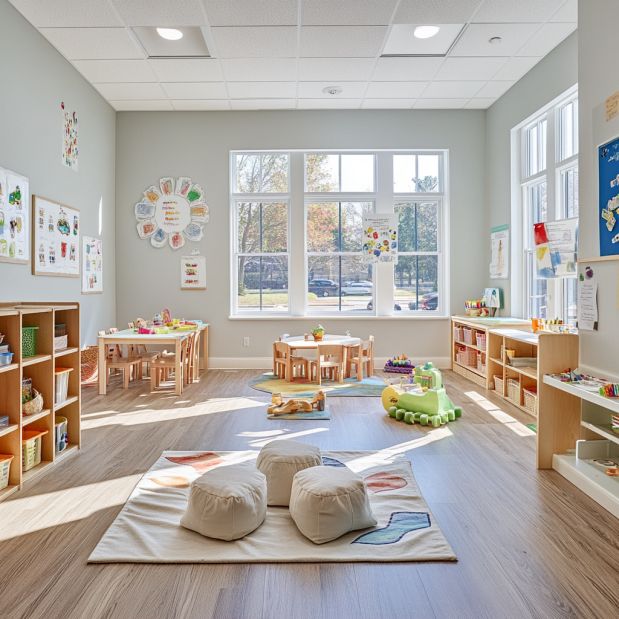Choosing the right childcare for your child is one of the most significant decisions a parent can make. While centre-based care offers a structured environment, home-based childcare provides a unique, nurturing, and often more personalised experience. In New Zealand, the home-based sector is regulated, but understanding what truly constitutes a high-quality service requires a discerning eye. Here’s what to look for when selecting a home based childcare provider that aligns with your family’s values and your child’s needs.
1. Licensing and Regulation: The Non-Negotiable Foundation
The first and most critical step is to ensure the home-based service is licensed by the Ministry of Education (MoE). This isn’t just a formality; it signifies that the service meets fundamental health, safety, and educational standards.
- MoE Licence: Always confirm that the home-based service holds a current licence from the Ministry of Education. This means they are subject to regular inspections and reviews by the Education Review Office (ERO).
- Police Vetting and Safety Checks: Licensed services are required to conduct thorough police vetting and safety checks for all adults living in the home where childcare is provided. Don’t hesitate to ask about their vetting processes.
- Emergency Preparedness: Inquire about their emergency plans, including evacuation procedures, first aid certification of the educator, and the availability of a well-stocked first aid kit. A clear and practiced emergency plan is vital.
2. The Educator: Your Child’s Primary Caregiver
The relationship between your child and their educator is central to the home-based model. This person will be a consistent and influential figure in your child’s early years.
- Experience and Qualifications: While not all home-based educators are required to be fully qualified early childhood teachers (though many are, or are working towards it), they should have relevant experience in caring for children. Ask about their professional development and ongoing training.
- Philosophy and Approach: Discuss their philosophy on child development, learning through play, and behaviour guidance. Do their values align with yours? A good educator will be able to articulate their approach clearly.
- Communication Style: Observe how they communicate with children and how they interact with you. Effective and open communication is crucial for a strong parent-educator partnership. Look for someone who is approachable, listens attentively, and provides regular updates on your child’s day and progress.
- Rapport with Children: During visits, observe how the educator interacts with the children already in their care. Do the children seem happy, engaged, and comfortable? A warm, responsive, and respectful interaction style is a strong indicator of quality.
3. The Environment: A Safe and Stimulating Home Away From Home
The physical setting of the home-based childcare plays a significant role in your child’s comfort and development.
- Safety and Cleanliness: The home should be clean, well-maintained, and child-proofed. Look for secure gates, covered power outlets, and safe storage of hazardous materials.
- Indoor and Outdoor Spaces: Assess the availability of both indoor and outdoor play spaces. Are there a variety of age-appropriate toys and resources that encourage exploration, creativity, and physical activity? Is the outdoor space safe and engaging?
- Routines and Flexibility: While a consistent routine is beneficial for children, home-based care often offers more flexibility than centres. Discuss how they manage daily routines, including sleep, meals, and play, and how adaptable they are to your child’s individual needs.
- Mixed-Age Groupings: Home-based settings often have mixed-age groups. Observe how children of different ages interact and how the educator facilitates these interactions. This can be a great benefit, allowing younger children to learn from older ones and vice-versa.
4. The Home-Based Service Provider (Agency): The Support System
Many home-based educators operate under the umbrella of a larger service provider or agency. This agency plays a vital role in supporting the educator and ensuring quality.
- Visiting Teacher Support: Inquire about the frequency and nature of visits from the qualified visiting teacher or coordinator. These professionals provide crucial support, guidance, and oversight to the educators.
- Professional Development: Ask what professional development opportunities the agency provides for its educators. Ongoing learning ensures educators stay current with best practices in early childhood education.
- Curriculum Implementation: Ensure the service implements Te Whāriki, New Zealand’s early childhood curriculum. Ask how they document children’s learning and progress in relation to this curriculum.
- Parent Support: Does the agency offer any support or resources for parents? This could include playgroups, workshops, or access to additional information.
Choosing home-based childcare is a personal journey. By focusing on licensing, the educator’s qualities, the home environment, and the support from the service provider, you can make an informed decision that provides a safe, stimulating, and loving “home away from home” for your child. Don’t hesitate to ask questions, visit multiple times, and trust your instincts.

